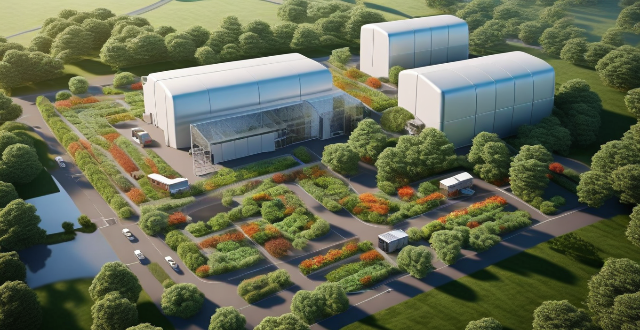The article discusses the benefits of using biodegradable food packaging, which include reducing landfill waste and greenhouse gas emissions, conserving natural resources by using renewable sources and saving energy, protecting wildlife and marine life from entanglement and toxic pollution, promoting sustainability through a circular economy model and raising consumer awareness, complying with stricter regulations on single-use plastics to avoid fines and penalties, improving brand image by enhancing corporate social responsibility and attracting environmentally conscious consumers, and driving technological innovation in eco-materials that could potentially outperform traditional plastics.

Benefits of Using Biodegradable Food Packaging
1. Environmentally Friendly
- *Reduces Landfill Waste*: Biodegradable materials break down naturally, reducing the amount of waste that ends up in landfills.
- *Lowers Greenhouse Gas Emissions*: Since these materials decompose more easily than traditional plastics, they produce fewer greenhouse gases during degradation.
2. Conserves Natural Resources
- *Uses Renewable Sources*: Many biodegradable packaging options are made from plant-based materials like cornstarch or sugarcane, which are renewable resources.
- *Saves Energy*: The production of biodegradable materials typically requires less energy compared to traditional plastics.
3. Safer for Wildlife and Marine Life
- *Prevents Entanglement and Ingestion*: When biodegradable packaging breaks down, it reduces the risk of animals becoming entangled in or ingesting non-degradable plastic pieces.
- *Minimizes Toxic Pollution*: Unlike some plastics, biodegradable materials do not release harmful toxins as they decompose.
4. Promotes Sustainability
- *Supports Circular Economy*: By using biodegradable packaging, businesses can showcase their commitment to sustainability and a circular economy model where waste is minimized.
- *Encourages Consumer Awareness*: Companies that use eco-friendly packaging often find that it raises consumer awareness about environmental issues and encourages them to make more sustainable choices.
5. Compliance with Legislation and Regulations
- *Meets Legal Requirements*: As regulations regarding single-use plastics become stricter worldwide, using biodegradable food packaging helps businesses stay compliant with local and international laws.
- *Avoids Fines and Penalties*: Non-compliance with environmental regulations can result in hefty fines and penalties; switching to biodegradable options avoids such financial setbacks.
6. Improves Brand Image
- *Enhances Corporate Social Responsibility (CSR)*: Companies that prioritize eco-friendly practices demonstrate a strong commitment to corporate social responsibility.
- *Attracts Environmentally Conscious Consumers*: An increasing number of consumers prefer buying from brands that align with their values, including environmental stewardship.
7. Technological Innovation
- *Drives Industry Innovation*: The demand for biodegradable packaging fosters research and development into new, improved eco-materials.
- *Potential for Performance Enhancements*: As technology advances, there's potential for biodegradable materials to outperform traditional plastics in terms of durability and functionality while still maintaining their eco-friendly advantages.
In conclusion, transitioning to biodegradable food packaging offers numerous benefits spanning environmental protection, resource conservation, wildlife safety, regulatory compliance, brand enhancement, and technological advancement. It's a step towards a more sustainable future that not only preserves our planet but also aligns with evolving consumer preferences and legal frameworks.